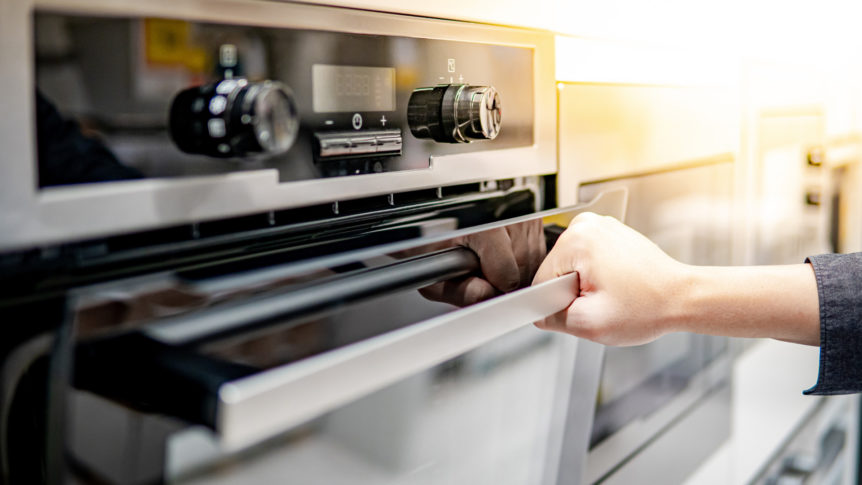It’s easy to overlook the importance of home appliances and how they make our lives so much easier. Often, we just realize their immense use once they break down when we need them the most.
The stove, microwave, refrigerator, and oven are essential pieces of your kitchen. In case any of these appliances break down unexpectedly, you can expect significant disruption in your daily schedule. For example, you might not be able to have breakfast on time and be late for work or school.
To avoid unwanted appliance failures, you need to put some effort into regular maintenance – and this means simple daily acts. Daily upkeep is still better than a sudden breakdown or buying a new one.
Among the kitchen appliances, the oven is probably one of the most durable units. On average, gas ovens and ranges can last for about 15 years while electric-type for around 13 years. Without proper care, you might have to shell out around $2,000 for a new oven and its installation. But just like your car, you can extend the lifespan of your oven by following a variety of techniques.
Below we list the top oven maintenance hacks.

Keep it clean
This is a simple tip that can go a long way in extending the lifespan of your oven. Technicians at Tampa appliance repair, Hartman recommend that you clean up the oven after each use. Once the unit cools down, wipe up spills both interior and exterior. Check if there are any debris, excess foods, and stains. As the debris build-up, the oven is required to work double time. This causes the heating elements to wear faster. It also consumes more energy.
Daily cleaning is much easier than trying to remove grime and grease that have built up in your oven. If possible, schedule all cooking tasks that require oven use in one day. This way, you’ll need to clean the appliance only once. This also minimizes the wear and tear of the appliance. Alongside daily cleaning, show some TLC to your oven. Be gentle with the door. Gently open and close the door, and never bang it. When using large cookware, carefully place it inside the oven space to avoid damaging its coating. This also prevents accidents and breakages.
Avoid the self-clean feature
New oven models come with a self-clean feature. While it comes as a boon for those who don’t have time and cannot wait for the oven to cool down for cleaning, regularly running auto-clean can shorten the lifespan of the unit. This feature works by using intense heat to burn excess ingredients and build-up. However, this process results in heat overload that prematurely wears out the heating elements. Instead of using the self-clean feature, take out the racks, and manually clean it. This thoroughly removes all buildup and even residues.
Avoid foil
Back in the days, it was customary to use foil when cooking in an oven. Foil is used to distribute heat and to avoid charring. It also disperses heat throughout the oven’s interior causing intense heat. While older ovens are capable of handling the excess heat, modern ovens might not. As a result, the thermostat can get damaged. Likewise, spreading the oven across racks impedes air circulation. This can lead to failures, particularly with the oven’s fan. Instead of using foil, use oven-safe cookware.
Use oven liners
Spillage is among the most common causes of oven failures. Oil, grease, and water can spill into the oven’s floor. It can then seep through its crevices and get into its embedded parts. Active compounds when heated can react with the metal parts of the oven, causing corrosion and rusting. Avoid this problem by using oven liners. These liners are specifically designed to capture spillage. It also makes cleaning easier as you simply need to throw it away once it cools down. If you bake more often, you can place an extra bake pan to catch all spills.
Avoid metal scrapers
When cleaning the oven, you might be tempted to scrape off excess food residue, grime, and grease using metal scrapers. While metal scrapers can get the job done quickly, it can damage the protective coating and heating elements of the oven. Instead of metal, use the plastic scraper as this is gentle on your unit.
Protect from power surges
Power fluctuations can cause major damage to your oven. The oven’s delicate electronics serve as the brain of the unit. It controls how the unit functions, such as turning on/off and increasing/lowering the temperature. The control board is particularly sensitive to power surges. In case it fails, the oven might be rendered useless. As such, it is important to protect your unit from power fluctuations. Make sure the unit is plugged in a surge protected outlet. Better yet, disconnect the unit when not in use.
Check the burners
Regularly inspect the oven’s parts, particularly the heating element or burners. The electric heating elements must be seated correctly. Pulling them forward might cause the connectors to melt. Likewise, it should be free from any deformities and debris, as it can heat up and start a fire. The element should glow evenly throughout. A spot that appears brighter suggests a need to replace the burner.
Check the seals
Oven seal is another crucial part that needs to be checked regularly. It is the pliable fabric seal that runs around the door and ensures optimum temperature control. Make sure the seal has no bumps, gaps, or kinks. Problems with the seal can cause heat to escape from the oven and eventually damage external parts, particularly the knob controls. It can also affect your cooking.
Repair as soon as possible
Even with the best care, appliance breakdowns are unavoidable. Don’t let these problems compound and become complicated. Once you notice something wrong, such as poor heating, unusual sounds, and faulty temperature control, you need to get it diagnosed immediately by a certified technician. Leaving these “minor issues” unattended can lead to more complicated problems.
Don’t wait for your oven to become completely inoperable before getting it checked. Get it repaired by a technician as soon as possible to avoid significant costs or even the need to replace the unit.

